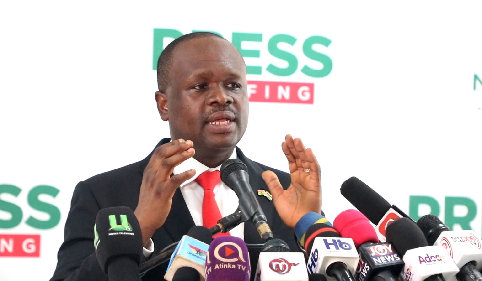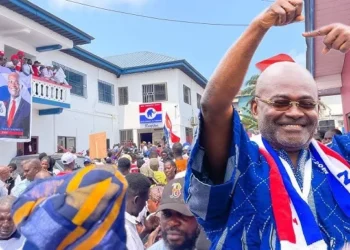The ongoing debate in Ghana about whether to commemorate Founder’s Day or Founders’ Day has sparked a nationwide discussion on history, identity, and nation-building.
The debate underscores the tension between recognizing the contributions of individual leaders and acknowledging the power of collective action.
Those who support September 21 as the founding day emphasize Kwame Nkrumah’s leadership, while those who prefer August 4 argue that the UGCC played a pioneering role.
Critics of September 21 argue that this perspective ignores the contributions of other individuals and groups, thereby perpetuating a narrow and exclusive narrative.
Adding his voice to the debate, Dr. Omane Boamah, Director of Elections and IT at the NDC has argued that the August 4 Founders’ Day holiday serves no purpose.
Accordingly, Omane Boamah asserted that the holiday was established by the Akufo-Addo-Bawumia government in an attempt to diminish, albeit unsuccessfully, the preeminent status of Osagyefo Dr. Kwame Nkrumah as the nation’s founding father.
“Nkrumah is the Founder of Ghana (FULL STOP). The NPP’s efforts have failed because Osagyefo’s stature is worldwide: The Pan-African world and the African Union adore him. Moreover, world leaders and the world as a whole acknowledge his unmatched qualities as a leader”.
“On this day, I ask you to suggest what Nkrumah would have done with the Olympic gold medal-winning National Cathedral wasteful pit”.
Dr. Omane Boamah
Furthermore, Dr. Omane Boamah pointed out that it is essential to remember that the Aliens Compliance Order was callously masterminded and executed by the UP (NPP) tradition.
He indicated that this led to the forced expulsion of individuals from Zongos who were unjustly labeled as ‘foreigners’ by the Danquah-Busia tradition, which was only made possible after the overthrow of Osagyefo’s government.
He stated that the Danquah-Busia faction then proceeded to seize and plunder the properties and assets of the individuals targeted by their ruthless Aliens Compliance Order, leaving the victims to suffer the consequences of their callous actions.
As such, Omane Boamah made the case that the UP tradition, which has its roots in the UGCC, does not deserve to have any of its personalities credited with the founding of Ghana.
Apology Demanded For Nkrumah’s Overthrow
Furthermore, Dr. Omane Boamah emphasized that the NPP owes Ghanaians an apology for the UP tradition’s role in the overthrow of Dr. Kwame Nkrumah, a pivotal event that has had far-reaching consequences for the country.

“An overthrow in 1966 that began a long night in postcolonial Ghana. And the NPP must also be apologizing to the good people in our Zongos for the heinous crimes they inflicted on them after the overthrow of Osagyefo”.
Dr. Omane Boamah
Echoing the sentiments of former President John Dramani Mahama, Dr. Omane Boamah called for the reinstatement of July 1, the day Ghana attained republican status, as a national holiday.
He made the case that abolishing August 4, a holiday unilaterally imposed by the NPP, is essential.
Meanwhile, Prof. Kobby Mensah jumped into the fray, arguing against the commemoration of Founders’ Day on August 4, dubbing it “The Un-holiday” and “The holiday nobody wants”, implying its lack of significance and popularity.
He observed that while the NPP government may have the power to declare a holiday, it lacks the authority to impose its narrative or force Ghanaians to embrace the supposed importance of the day, as genuine recognition comes from the heart.
“The pushback is amazing. The government is surprised how a dead man can wield so much power [for] years and years. Kwame Nkrumah never dies. So many years since his overthrow and death, some of the living are still competing with him”.
Prof. Kobby Mensah
Prof. Mensah sarcastically pointed out that J.B. Danquah, the supposed honoree of the August 4 holiday, is the founder of Akanland, not Ghana, and sarcastically encouraged the NPP to ponder the implications of this fact.
The Founder’s Day and Founders’ Day debate in Ghana offers a unique opportunity for reflection and growth.
Ultimately, the debate highlights the complexity of Ghana’s history and the need for a nuanced understanding of its founding and independence.























